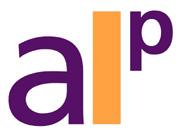ALP reacts to SASE

The Specification of Apprenticeships Standards England (SASE) was finally published on January 21st with an accompanying press release from Skills Minister John Hayes that stated: “New measures to guarantee the quality of 0the Government’s flagship Apprenticeship programme, ensuring every apprenticeship delivers training that directly meets the needs of employers and learners.”
BIS, UKCES and NAS now expect the Sector Skills Councils (SSC) to interpret the SASE and complete their detailed frameworks prior to April 2011. This comes after the final document was deemed more of a specification rather than the comprehensive glossary of information and guidance that was expected from the article.
The Association of Learning Provider’s (ALP) preliminary observations on the SASE are as follows:
- Level 2 Apprenticeships will become “Intermediate Level Apprenticeships”
- The SASE fails to specify the definition of on and off the job learning that was agreed in previous versions
- The SASE lists in detail the Functional Skills proxies and/or minimum achievements for English and Maths and Key Skills (until Sept 2012). Level 2 ICT is an option for SSC framework developers, however if inserted it must be achieved at Level 2 for Advanced Apprentices where Level 1 was previously allowed
- Apprentices must achieve the standards of attainment set out in the Personal, Learning and Thinking Skills (PLTS x 6) national outcomes. This suggests frameworks will indicate within a qualification or elsewhere, how achievement is to be evidenced
- ERR appears to be a straight forward update on current requirements, although many SSCs are planning to introduce standalone QCF units as a way of completion
- Functional Skills are worth 5 credits and SSCs will be responsible for setting out the competence and knowledge qualifications required. Integrated QCF qualifications will also be permitted but under rules of combination.
Commenting on the SASE, ALP Director of Employment and Skills Paul Warner said: “ALP’s chief concern is that the delay in the publication of the SASE has hampered the ability of Sectors Skills Councils to develop compliant frameworks that need to go through an approvals process. Many have been reluctant to submit anything until they were assured about the final guidance and this has serious implications for provider preparedness and possibly for delivery performance.”
With the April 6th deadline looming there is a risk that SSCs will complete frameworks in a rushed fashion with limited consultation of employers, providers and learners.
Employer contributions – how would providers go about it?
In related news, the Government (Treasury) has displayed a determination to see a more balanced sharing of the costs of vocational training. This sharing, between the state, employers and individuals, has caused debate about how equality will be achieved.
ALP states that practical proposals from the frontline would be welcome and the Banks’ Fees Review could also influence proceedings. The final decision is critically important to providers and an opportunity to explore the matter in detail will be provided at the ‘Single line budget’ regional seminars which ALP has planned for later this year.
Errol Anderson






Responses